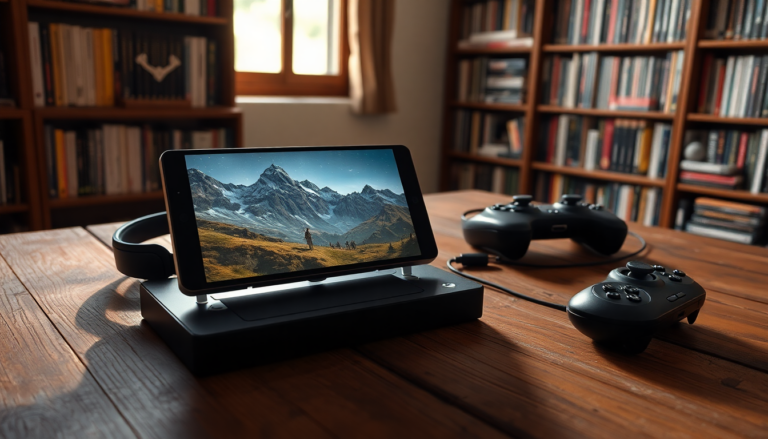Argomenti trattati
Introduction to Oblivion on Steam Deck
If you’re a gamer who enjoys handheld experiences, you may find yourself weighing the options between the original Oblivion and its remastered counterpart on the Steam Deck. While many players appreciate the convenience of playing on-the-go, the gaming experience can differ significantly based on which version you choose.
Getting Started: The Original Oblivion Experience
Recently, I dedicated a day to optimizing the original Oblivion for the Steam Deck. Although it’s playable right from the start, the vanilla PC version lacks essential gamepad support, which makes it challenging to transition smoothly between keyboard prompts and the Steam Deck’s Xbox-style controls. Fortunately, the community controller layouts on Steam Deck are incredibly helpful, but it does require some adaptation.
To enhance my experience, I dove into modding. After spending an hour installing various mods, the original Oblivion morphed from a questionable playable title into a stunning handheld RPG experience that rivals Skyrim. However, with the release of Oblivion Remastered and its “Verified” status on Steam Deck, it begs the question: is the hassle of modding the original still worth it?
Comparing Performance: Original vs. Remastered
My decision to revisit Oblivion stemmed from buzz surrounding the remaster, but I realized I might have jumped the gun. While the Steam Deck can handle the remaster, I still lean towards recommending the original with mods. If you value a locked 60 fps and decent graphics, the original is unbeatable, especially with years’ worth of mods at your disposal.
On the flip side, if you prefer the modern graphics of Unreal Engine 5, albeit with a frame rate that barely reaches 30 fps in outdoor settings, the remastered version could be appealing. It’s crucial not to equate the “Verified” label with an outstanding gaming experience on the Steam Deck. Although the remaster runs without issues, its performance leaves much to be desired.
Frame Rate and Graphics Quality
In my testing, the remaster struggles to maintain a solid frame rate, particularly in the open world. During my journey around Lake Rumore, I noticed drops to 21 fps, particularly when the game loads new areas. In combat scenarios, the frame rate dips even lower, which can be frustrating. For instance, during a challenging encounter with multiple foes, the combination of low frame rates and muddied graphics made for an unenjoyable experience.
Even lowering the settings to the lowest possible options didn’t yield satisfactory results, as I still experienced frame drops in crucial moments. The average performance fluctuated around 25 to 50 fps, and in less detailed areas, I could sometimes hit 60 fps, but with significantly compromised image quality.
Battery Life and Cost Considerations
When comparing the two versions, the differences in battery life are noteworthy. The original Oblivion can last up to six hours on the Steam Deck, while the remastered edition struggles to reach three hours. The price is also a factor: the original game is typically around $15, whereas the remaster costs about $50. This price disparity makes the original a more appealing option for budget-conscious gamers.
Modding the Original Oblivion for Optimal Experience
Setting up the original Oblivion for modding on the Steam Deck is relatively straightforward. It involves downloading and installing the Oblivion Script Extender, which is essential for most mods, and then adding the Northern UI mod. This mod not only enhances controller support but also updates the user interface to provide a cleaner, more modern look. For those who prefer the classic feel, there’s even a version that retains the original UI aesthetic.
Once you follow the modding instructions, you’ll achieve a smooth gameplay experience that runs beautifully on the Steam Deck, often at ultra settings. It’s a reliable and affordable way to enjoy Oblivion on the go.
The Final Verdict: Which Version to Choose?
Ultimately, the choice between Oblivion and its remastered version depends largely on your gaming preferences. If you primarily play on handheld devices and enjoy a consistent performance, the original with mods is the way to go. However, if you prefer superior visuals and play predominantly on desktop, the remaster might be worth considering.
For those interested in exploring beyond Oblivion, Daggerfall also provides an excellent experience on the Steam Deck, despite its unsupported status. Simply download the original game on Steam and install the Daggerfall Unity mod to enjoy this classic in a modern engine.

